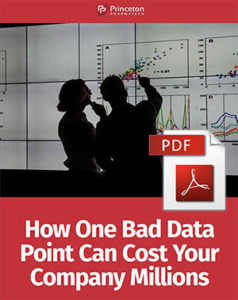Speed Or Accuracy? You Need Both.

Of course, this is a false dichotomy. You need both from your biostatistical contract research organization (CRO). Inaccurate research and data analysis isn’t just useless, it’s very costly — to the tune of one million dollars a day. That doesn’t even include the cost to your organization’s reputation or a potential exodus of investment dollars.
Similarly, accurate research and data analysis coming in too late can sink your entire project. Being first to market is important in any industry. However, in pharmaceuticals, it’s absolutely crucial. The world’s most accurate research and data analysis won’t matter much when your medical breakthrough comes in second place, no matter how close that second place is.
What your organization needs is quick and accurate results. So how do you ensure you’re going to get that? Here are some quick tips on how to ensure results that are both accurate and timely, ensuring optimum results for your organization.
- Select for Accuracy First: Of these two, accuracy should be the primary criteria for selecting a CRO. Why accuracy over speed? Because accuracy has a speed of its own. Even finding out where research or data analysis went wrong can take weeks. Getting it right the first time is always faster than going back and finding where mistakes were made. The latter is a necessarily time consuming process.
- Leverage Centralized Data: When you centralize your data, every vendor is pulling from the same data set. That ensures both accuracy and speed. Vendors will not have to hunt down the data they need. When they access data, it will always be the most accurate and up-to-date version of your data.
- Set Clear Deadlines: A lack of clear communication regarding deadlines might mean that problems with timeliness are more your fault than the CRO’s. However, during your exploratory phase you should ask direct, pointed and probing questions regarding the biostatistical CRO’s history of meeting deadlines set before them. Ask what they do when contingencies occur, as they inevitably do.
- Round Peg, Round Hole: Your chances of accurate, timely results are significantly increased when you select a biostatistical CRO specializing in a relevant field. If a CRO specializes in, or even primary has worked with, for example, diabetes treatments, they might not be as capable of providing accurate, timely results for your central nervous system disorder drug.

- Deprioritize Cost: Many times, sponsors choose their biostatistical CRO based on the cost rather than accuracy or efficiency. This is a mistake that can be extremely costly for your organization in both the long and the short term. Check out our recent white paper, “Small Inaccuracies Mean Big Calamities For Your Business” for more on why cost is a sub-optimal means of CRO selection.
Start your search for a biostatistical CRO with an eye on accuracy and speed. This is one of the best ways to get the most value for your money, rather than just selecting the lowest bid, which might contain a number of hidden costs, monetary and otherwise. Read our white paper and then schedule a one-on-one briefing with a Princeton Pharmatech biostatistical expert. We can advise you on how to prepare an RFP that puts the focus on accuracy and speed combined rather than just lowball bids.
Next Steps:
Read our analysis on other topics related to Getting FDA Approval.
Schedule a one-on-one call to see how we can help with you FDA Submissions.
See how Princeton’s services can help you.
Subscribe to our blog to stay up to date.